Donovan
 Donovan’s been here before.
Donovan’s been here before.
“I believe I’m a reincarnated poet from an old tradition,” the 65-year-old singer-songwriter reveals without skipping a beat.
Coming from any other artist, this bit of cosmic reminiscing might cause a snigger or two. But with Donovan Philips Leitch, you’d be disappointed if he didn’t have a back story that was slightly dippy.
And multi-century résumés are easy to pardon when you remember this affable Scotsman’s reign from 1966-1969. With a keen musical instinct for mixing topical messages and sunshine hooks, Donovan scored 11 straight Top 40 hits, including the No. 1 “Sunshine Superman.” He palled around with Dylan, Hendrix and the Beatles. Today, his best songs, such as “Superman,” “Catch the Wind,” “Mellow Yellow,” “Jennifer Juniper” and “Hurdy Gurdy Man,” have endured as staples.
The ’70s and ’80s were less kind to Donovan. By his account, he was “semi-retired,” though he still managed to write and record seven albums (which remain unreleased). He didn’t surface again until 1996, when the Rick Rubin-produced Sutras and a retrospective box set once again made the world safe for saffron and electrical bananas.
Recently, Donovan’s been involved with the Maharishi University of Management in Iowa, teaming up with avant-garde director David Lynch to bring Transcendental Meditation into public schools as an alternative to Ritalin and other medications for kids. His autobiography, Hurdy Gurdy Man, was released in paperback in 2007, and he has recently released a new 2-CD package called Ritual Groove.
Bill DeMain caught up with Mr. Mellow for a chat about past lives, peaceful revolution and hanging out with the Beatles in India.

India, 1968 (l-r): Jenny Boyd, Jane Asher, Paul McCartney, Donovan, Mia Farrow, George Harrison, the Maharishi, the Beach Boys’ Mike Love, John Lennon & Pattie Boyd
Leonard Cohen said that a poet finds his theme when he’s a teenager and never leaves the theme. Has that been true for you?
Absolutely. The theme is set and all other songs are variations of the theme. From a very early age, my theme was how to rediscover the Celtic magic of the troubadour sound that leads people into the inner world where all creativity comes from.
What techniques did you use to find that inner world as a songwriter?
Reading Jack Kerouac and hearing the word “Zen” and going on to Buddhism, then rediscovering the Eastern philosophies and the word “meditation,” I realized that there was an actual technique for finding the inner world that we’d lost in the West.
In 1965, with “War Drags On” and “Ballad of the Crystal Man,” you were one of the first pop singers to directly address the Vietnam War. At the time, did that feel dangerous?
My father brought me up in the socialist tradition. He read me poems of radical change. Poets in the 1700s addressed the great tragedy of the working man and how the industrial revolution was enslaving mankind. With my father, revolution was always in the air. He was a unionist, brought up in the factory world in Glasgow, who went to school barefoot in 1920, but taught himself about poetry and literature. So I was well-primed, when I was 16 and heard the radical songs of Woody Guthrie and Pete Seeger and realized what was going on. There was a growing voice coming out of that tradition. Did I feel threatened? No. I took on the mantle very early to be a voice for a generation who was speaking out against hypocrisy and greed.
How do you connect the dots between singing against the war and meditating with the Maharishi two years later?
Protest in the streets started to become ineffective. I thought, “There is no way we’re going to change society by just changing the rider of the same wild horse.” It’s all very well to want to change the world with a revolution, and many men and women have died for the cause. But the armed struggle is wrong. It became clear to me and others that the true change of humanity’s madness, sickness and suffering was going to be far deeper in the human psyche. The great teachers—Carl Jung, Sigmund Freud, Joseph Campbell—spoke of being able to enter the inner world, where all things come from and all things return. Not a religion. The Beatles and I sat around talking about this.
The famous retreat in India in 1968 is fascinating. Paul McCartney described it like being at a summer camp. Your take?
We went to Rishikesh with only acoustic guitars, and we sat and meditated. The press of the world camped outside the ashram until the Maharishi got the Indian army to tell them gently to go home (laughs). For six weeks, we lived in the jungle. The Beatles and I walked away from our commitments. We stopped drinking, stopped smoking hash, stopped eating meat. It was an extraordinary experience. The mantra that the Maharishi gave me and the transmission of initiation plummeted me deeper than any drug I’d ever tried. I went deep, deep, deep.
And you taught the Beatles about fingerpicking.
John looked at me playing guitar one day and said, [imitating Lennon] “How do you do that?” I said, “It’s a pattern. Do you want to learn?” And we proceeded. Out of that, the picking patterns produced songs like “Dear Prudence” and “Julia.” When we meditated, John was going deep into his past, and great suffering came out in songs that ended up on The White Album. In the Anthology film, George says, “Donovan’s all over The White Album.” In fact, The White Album is influenced probably 75 percent by my style.
Ringo had a difficult time in India. He talked about baboons stealing his breakfast, and having to fight off tarantulas and scorpions to take a bath.
He meditated, but he was frivolous about it. He didn’t like the summer-camp atmosphere. But he benefited tremendously from it.
What about the Beatles’ falling out with the Maharishi?
The so-called fiasco where it seemed like the Beatles fled because the Maharishi was having affairs with women was rubbish. Absolute rubbish. John was going through a lot of changes then.
What is the story behind “Sunshine Superman”?
The inspiration for the lyric came out of meeting my wife Linda in 1965. She had been in a relationship with Brian Jones of the Rolling Stones. When they split we got together, but it became apparent that Linda wasn’t ready for another ride around this extraordinary thing called fame. So we parted. But in the parting, she put me on the charts, because I immediately wrote “Sunshine Superman.” It isn’t the sort of song that sounds like a broken heart. There seemed to be an intense feeling that we would meet again, and sure enough, we did.
As for the title, “Sunshine” was a tag describing acid. LSD was legal and pure then. We were experimenting with it, as were poets, scientists and philosophers. I was relating “Superman” to [German philosopher] Nietzsche, about this idea of the Superman of the future who would be totally enlightened and using the full potential of his brain and heart and soul.
But I also love comic books, so that’s why I sang about the Green Lantern, too. Comic books are mythological. The superhero in my song is everybody. We can all become the superhero of ourselves.
Musically, the song is built on a chord structure that came from listening to early Beatles songs. I was messing with C7th and the odd G changes. The Latin groove was coming from my love of jazz. When I met my producer Mickie Most, and he heard the harpsichords, congas and flutes, he said, “Whoa, you have to have an arranger.” He introduced me to [jazz arranger] John Cameron. So the three of us cooked up the sound—and the song went to No. 1.
—by Bill DeMain
From Performing Songwriter Issue 101, May 2007

Category: Legends of Song







 Creative Workshops fill up quickly! Sign up here to receive first notice and announcements.
Creative Workshops fill up quickly! Sign up here to receive first notice and announcements. 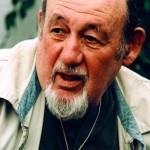
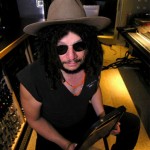
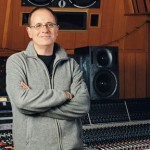

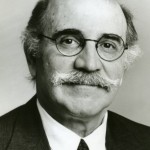
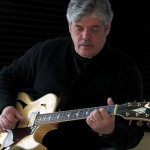
That’s not Jenny Boyd on the far left in the group shot taken in India – that’s Cynthia Lennon
Just looking at the Donovan film and fascinated. Now 61 and lifelong guitar player and singer. Realise massive impact of Donovan on my attitude to life, songwriting and guitar player..was subliminal! Have published book of poems …want to send him a copy…no need for direct contact..just want to say thanks for influences…I see them now! and the artistic influence. Enjoyed him at Ballymaloe concert Cork recently. Have had good academic career as librarian, historian, archaeologist …but see now how impact of singing and playing Donovan influenced all that personal development out of hopelesss otherwise.. working environment in Cork..just want to say thanks by means of my poetry book and ongoing songs and performances…Donovan was truely inspirational way beyond my admiration for Gallagher.
Max
East Cork
What’s so strange about having a sense that one was a poet in a past life? Reincarnation is not a new idea or notion in the world. It’s the 21st century – we are not in the blinkered, ignorant 1950s!
I’m curious about the inspiration/genesis of the song, “Pamela Jo” (on the Barabajagal album).
My name is Pamela Jo…